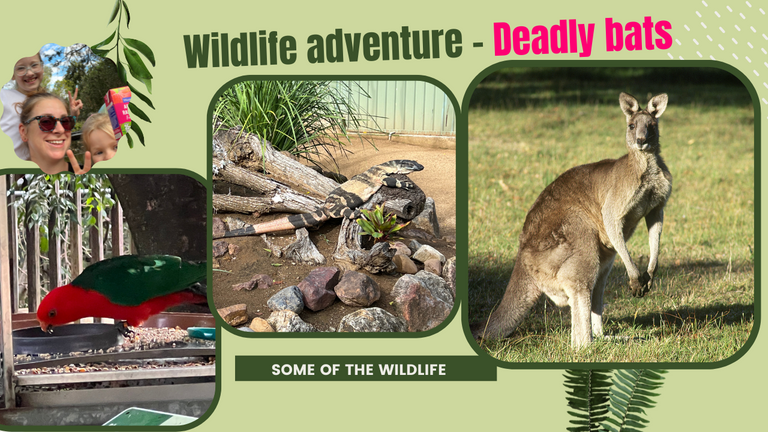
--
WALKING UNDER ANIMALS THAT IF YOU GET BITTEN YOU WILL LIKELY DIE.... meh thats Australia.. lol
Clues: I'm typing so we didn't die...
Hey there, fellow adventurers! Today we went on an exciting adventure stumbling upon a hidden oasis right in the heart of Ipswich. (Near Brisbane, Australia) After the girls' ballet classes (yes, even during the school holidays!), we took a spontaneous detour through the enchanting Queens Park Nature Reserve. We saw kangaroos, wallaby, padymelon, snakes, barn animals, aviary, swans, peacocks and all the other awesome Australian wildlife hidden in a tucked away part of a little town. ALL FOR FREE!
Discovering a Hidden Oasis:
Can you believe it? After five years of living here, we had no clue about the secret paradise called Queens Park Nature Reserve. It was like stumbling upon a hidden treasure right in our backyard. Granted it was a few years ago we found it, but still, we spend FIVE YEARS here without any clue that we drove past this nature reserve everyday, I had even been to the park before and not seen the hidden entry. Tucked away from the daily grind, this tranquil haven offered us a much-needed escape into nature's embrace. Its pretty small... but it is the PERFECT size for an quick walk around with little kids. Ample parking (normally) and easy pathways. I find taking kids to the big ones that take the full 8 hours to see all of it can be so exhausting.
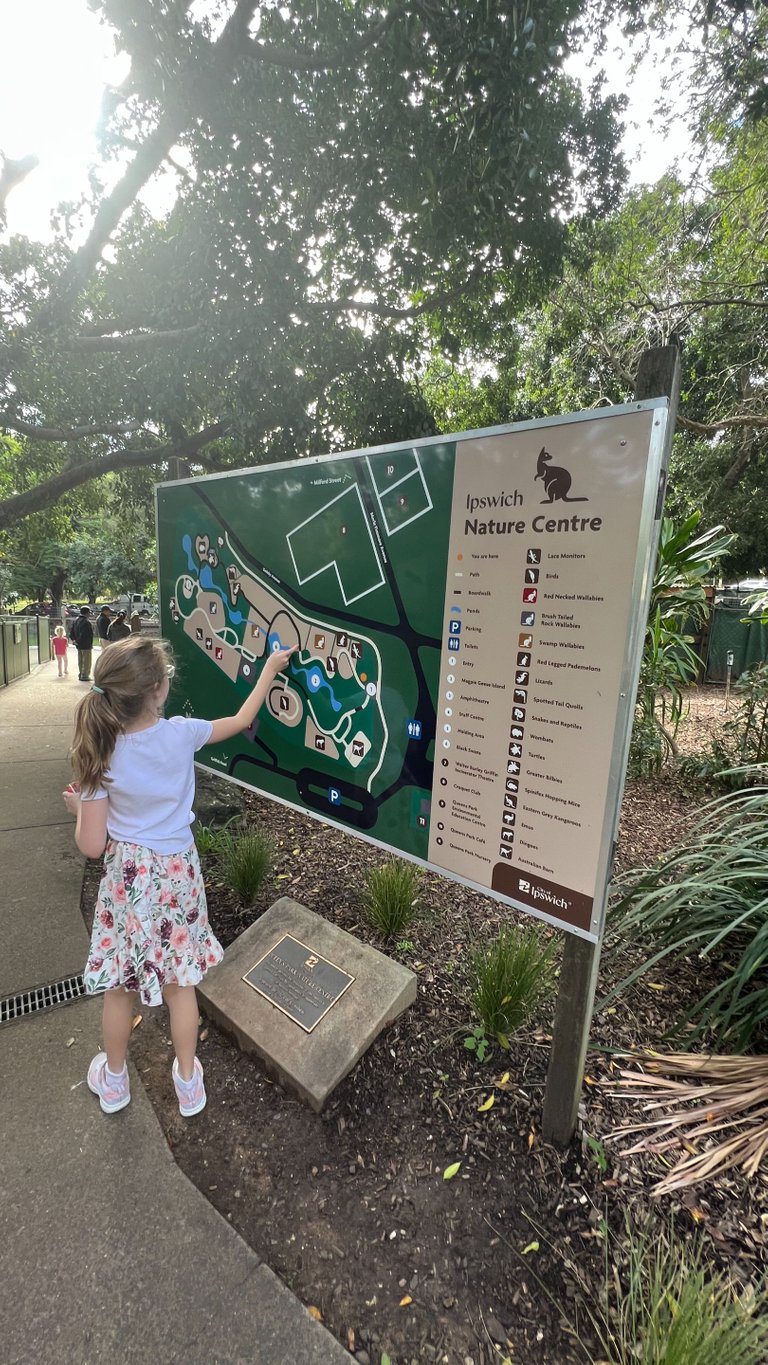
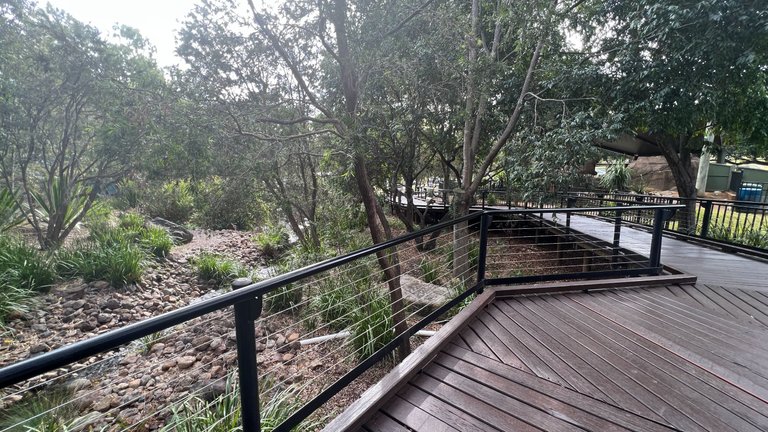
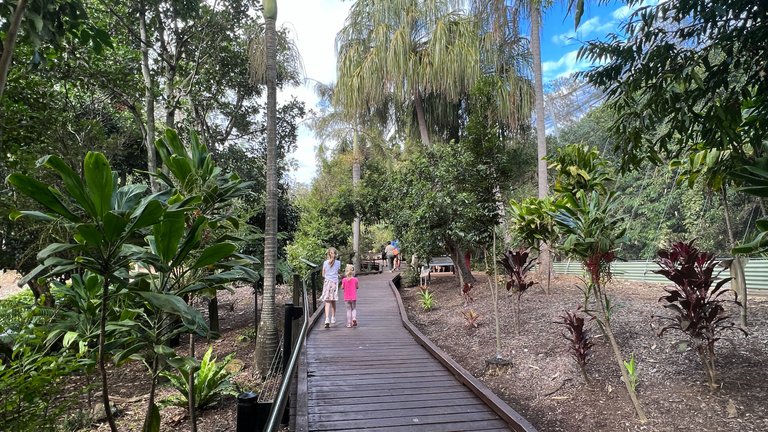
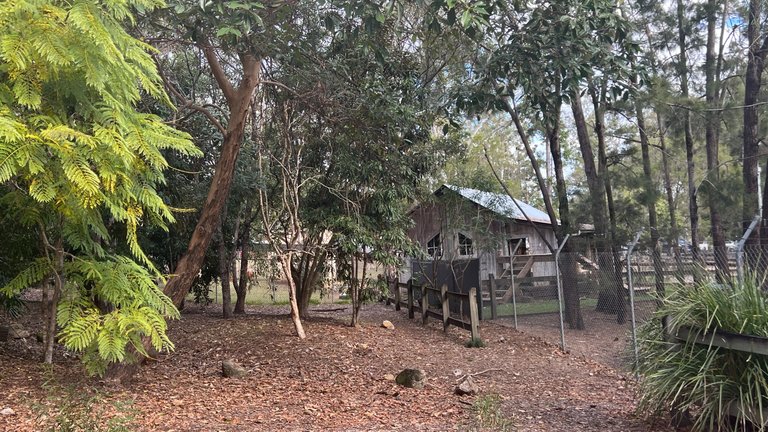
A Brush with Myth: The Lyssa Virus and Bats:
As we arrived at the reserve, My big one was a bit frightened due to the signs about the DEADLY BATS above us... slight unease was apparent lol as she walked around often grabbing my hand... (but she loved it don't stress) . Why, you ask? Well, let's talk bats. Apparently, there are some bats around here carrying the Lyssa virus,and this park is a huge bat home. In fact sometimes they actually shut the park when they deem the numbers too unsafe or its moving season and so forth. However, The chances of encountering an infected bat and getting bitten are incredibly low. JUST DONT TOUCH THEM... So, we decided to set our worries aside and focus on the true magic of the reserve. That being said when you can see thousands of them in the trees above you screeching like a horror movie, i get why it would be unsettling.
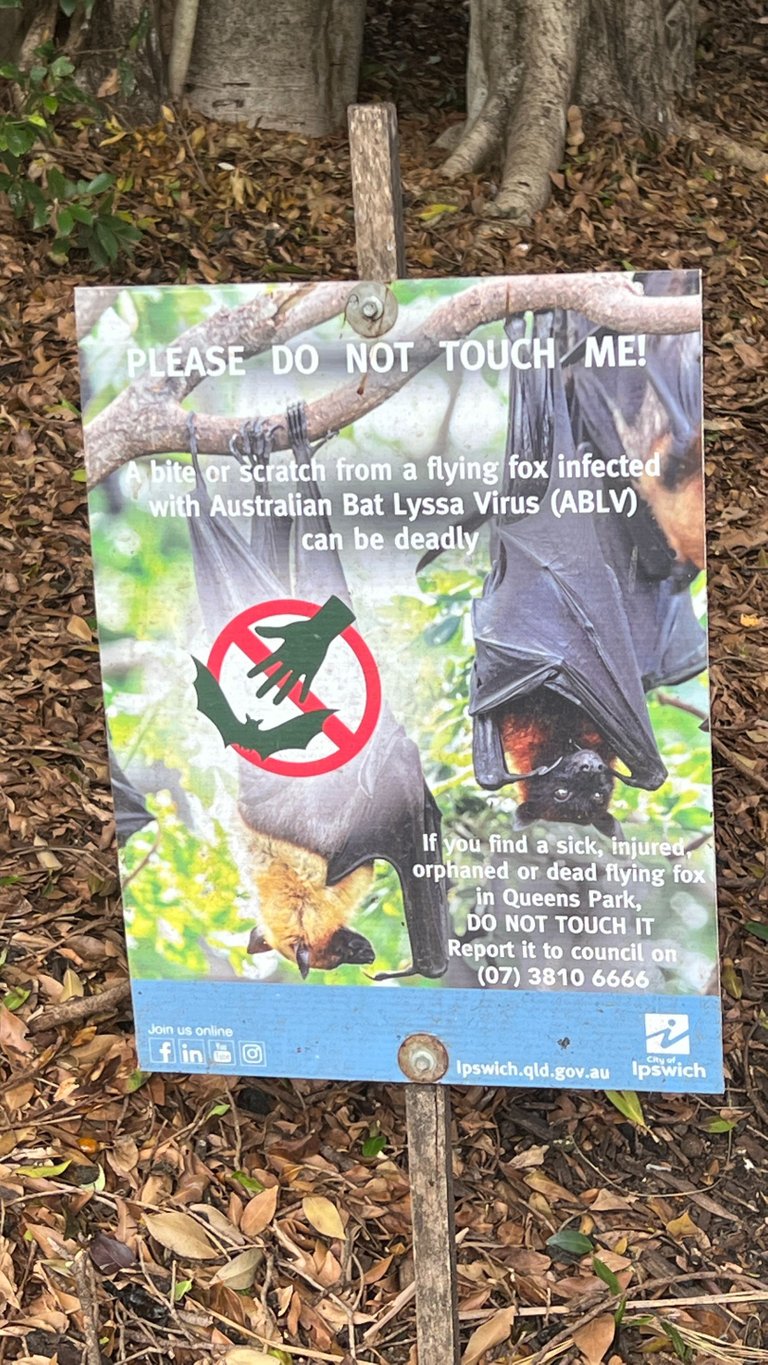
Here you can actually see all the bats
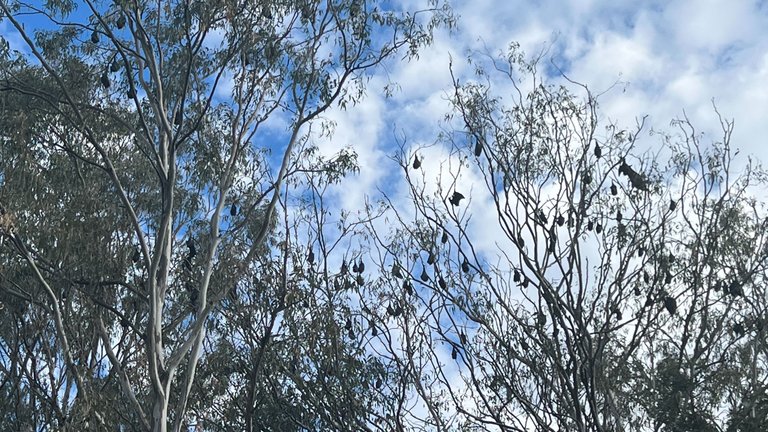
they actually have to come down from the tree and bite you (or you pick up a dead one)
However if you get bit and get symptoms --> YOU DIE!!!!!!!
Good ole Aussie Wildlife... Always trying to kill you
Ah, Australia—the land where wildlife keeps you on your toes! From snakes to spiders to those notorious bats, we've got it all. It's like living in a real-life adventure movie. However the kids kinda know what not to touch these days... mostly as i shout "DONT GO UNDER THAT DEAD TREE WITHOUT ME..." or "DON:T LIFE UP THAT PIECE OF OLD IRON..." as i panic over to check for deadly brown snakes... those things ARE DEADLY even the tiny litte baby ones. But you know what? We've learned to appreciate the wild side of life down under. It adds a dash of excitement to our everyday routines and reminds us to embrace the unique wonders that come with living in this diverse country.
LYSSA VIRUS
Note husband used to work in this sort of field and now works with humans.. lol
Lyssa virus, also known as the rabies virus, is a neurotropic virus belonging to the Rhabdoviridae family. In Queensland, Australia, it is predominantly carried by flying foxes, a type of fruit bat. The virus is primarily transmitted to humans through the bite or scratch of an infected bat. The chances of contracting the virus are generally low, given that most bats naturally avoid contact with humans. However, it is essential to exercise caution and seek medical attention if bitten or scratched by a bat. Once symptoms of Lyssa virus infection manifest, the disease is almost always fatal. Immediate post-exposure prophylaxis (PEP), consisting of wound cleaning, vaccination, and administration of immunoglobulins, is crucial to prevent the virus from entering the central nervous system. PEP has shown success in preventing the onset of symptoms when administered promptly after exposure. However, once clinical signs appear, the prognosis is dire, and recovery is exceptionally rare. Therefore, preventive measures, such as avoiding contact with bats and ensuring pets are appropriately vaccinated, play a crucial role in reducing the risk of Lyssa virus transmission.
BASICALLY IF YOU GET BIT AND GET SICK YOU DIE.... nothing the docs can do
While it's important to stay informed, it's equally important not to let myths overshadow the true beauty of a place. Yes, there might be bats around carrying the Lyssa virus, but let's keep things in perspective. The likelihood of encountering an infected bat and getting bitten is pretty darn low. So, we took a deep breath, put our worries aside, and fully immersed ourselves in the wonders the reserve had to offer. I mean i could guarentee much to my great fear there are several creepy crawlies in my big garden that would kill me if they had a chance...
Our adventure in Queens Park Nature Reserve reminded us of the importance of preserving these hidden treasures. It's up to us to cherish and protect these havens of biodiversity, ensuring that future generations can experience the magic we stumbled upon. By dispelling myths and embracing the wonders of nature, we create a world where wildlife and humans can coexist harmoniously.
I am super worried about our special wildlife so much that is just not anyowere else. Like our beautiful koala's. They will be gone before we know it and im glad that my kids see them often. Hopefully they feel the need to prtect them too.
Happy exploring, everyone!
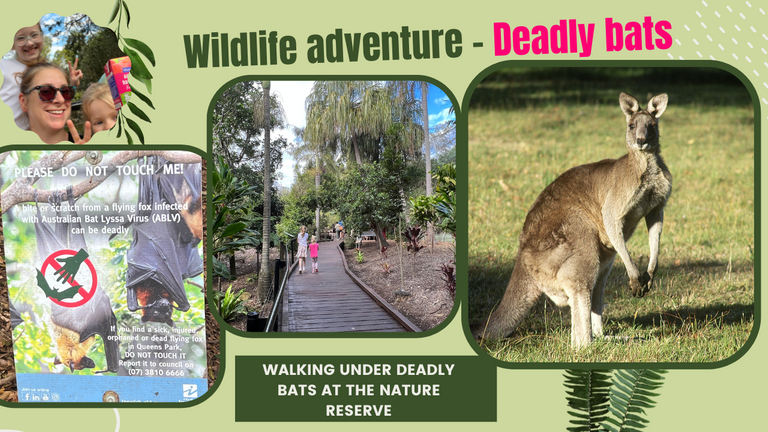
code below:





